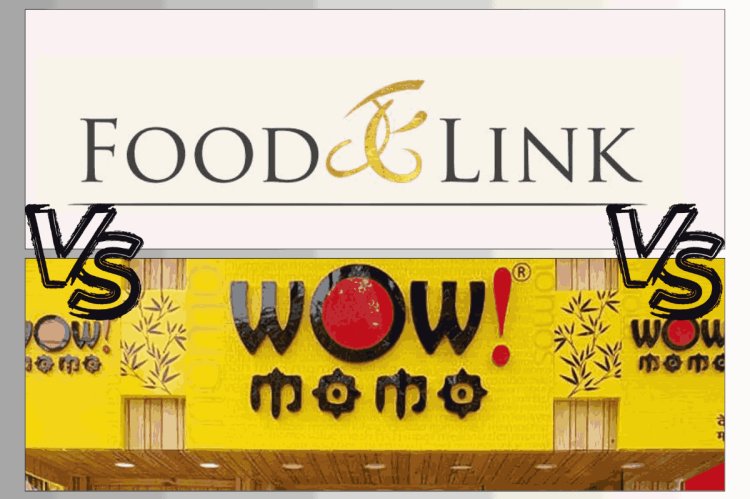Foodlink F&B Holdings India Private Limited v. Wow Momo Foods Limited
This legal case involves a dispute between Foodlink F&B Holdings India Private Limited (the plaintiff) and Wow Momo Foods Private Limited (the defendant) over trademark infringement. The plaintiff, holding the trademark "CHINA BISTRO," alleged that the defendant's mark "WOW CHINA BISTRO" infringed upon their rights. The court ruled in favor of the plaintiff, emphasizing the distinctiveness of composite marks and ordering the defendant to cease using the contested mark.

Foodlink F&B Holdings India Private Limited v. Wow Momo Foods Limited
2023 SCC Online Del 4719
Decided on 03-08-2023
FACTS OF THE CASE
The parties involved in the current legal action were Foodlink F and B Holdings India Private Limited, the plaintiff, and Wow Momo Foods Private Limited, the defendant. The plaintiff had the registration for "CHINA BISTRO," and the defendant was using the trademark "WOW CHINA BISTRO."
Plaintiff alleged that the defendant had violated the terms of their trademark registration, which has been in class 43 since January 11, 2012, and covers a variety of businesses, including restaurants, bars, snack bars, hotels, cafes, cafeterias, canteens, catering, outdoor catering, food courts, and stalls.
The mark "WOW! CHINA," which is a device mark, was used by the defendant up until 2019. After that, they added the word element "BISTRO" underneath the word "CHINA," creating the mark "WOW! CHINA BISTRO."
Plaintiff asserted that the Defendant's mark is confusingly similar to theirs due to the addition of the word element "BISTRO" under "CHINA" in the mark. Both marks now read "CHINA BISTRO," with the Defendant's version varying only by the addition of "WOW!" above "CHINA." Plaintiff claimed that even for the average client with a poor recall, this "WOW!" does not sufficiently reduce potential confusion. The disputed mark was not registered with the defendant. Both designations were applied to high-end restaurants serving Chinese food, which are similar services.
CONTENTIONS OF THE PLAINTIFF:
The text highlights the concept of distinctiveness in composite marks. While individual parts of a composite mark may not be distinctive on their own, their combination may result in a distinctive mark. The text provides an example of two ordinary words that, when combined, become distinctive.
However, the text also indicates that the distinctiveness of a composite mark does not always depend on the distinctiveness of its individual parts. In some cases, a composite mark may still be considered distinctive even if its individual parts lack distinctiveness, provided that the combination of these parts results in a distinctive mark.
Furthermore, the text notes that the collective mark CHINA BISTRO, when taken as a whole, cannot be considered deficient in distinctiveness, particularly in the absence of any supporting documentation provided by the defendant. This suggests that the distinctiveness of a composite mark is subject to interpretation and may depend on various factors, including the specific components of the mark and the context in which it is used.
CONTENTIONS OF THE DEFENDANT:
During the legal proceedings, the defendant raised objections over the plaintiff's right to claim infringement. According to the defendant's attorney, the terms "CHINA" and "BISTRO" are generic and widely used, making them non-exclusive and not eligible for individual trademark registration.
Additionally, the defence attorney pointed out that the plaintiff's trademark registration, obtained on July 18, 2006, was for a device mark under Class 42. This mark was used for various services, including restaurants, bars, snack bars, hotels, cafes, and cafeterias. However, the registration included a disclaimer stating that the plaintiff did not claim exclusive rights over the terms "China" and "Bistro" unless expressly stated.
OBSERVATION OF THE COURT
The court made a ruling on a trademark case, where it was determined that the mark in question was distinctive and not just a mere combination of words. Although the term "BISTRO" could be seen as a synonym for "cafe," it was determined that the term was not commonly used. In contrast to "CHINESE CAFE," the composite term "CHINA BISTRO" retained its uniqueness, and therefore should be protected under the law.
In its decision, the court ordered that the defendant and its representatives were prohibited from using the mark/name or WOW CHINA BISTRO as a trademark, label, device, trading style, trade name, logo, keyword, meta tag, domain name, or in any other manner similar to "CHINA BISTRO," except for "WOW CHINA LIVE CHINESE" and "WOW! CHINA."
The court also clarified that the disclaimer did not extend to the composite mark "CHINA," and that under Section 17 of the Trade Marks Act, marks must be compared as a whole. Thus, it was deemed that the marks "WOW China Bistro" and "China Bistro" were deceptively similar due to identical textual components and only a prefix difference.
Courts Analysis
The Foodlink F&B Holdings India Private Limited v. Wow Momo Foods Limited case reaffirmed the importance of considering the distinctiveness of composite marks. The court prohibited the defendant's use of the mark "WOW CHINA BISTRO" in various forms, reinforcing the protection of the plaintiff's trademark rights. The case highlights the importance of evaluating the distinctiveness of composite marks and the overall impression created by the mark.












